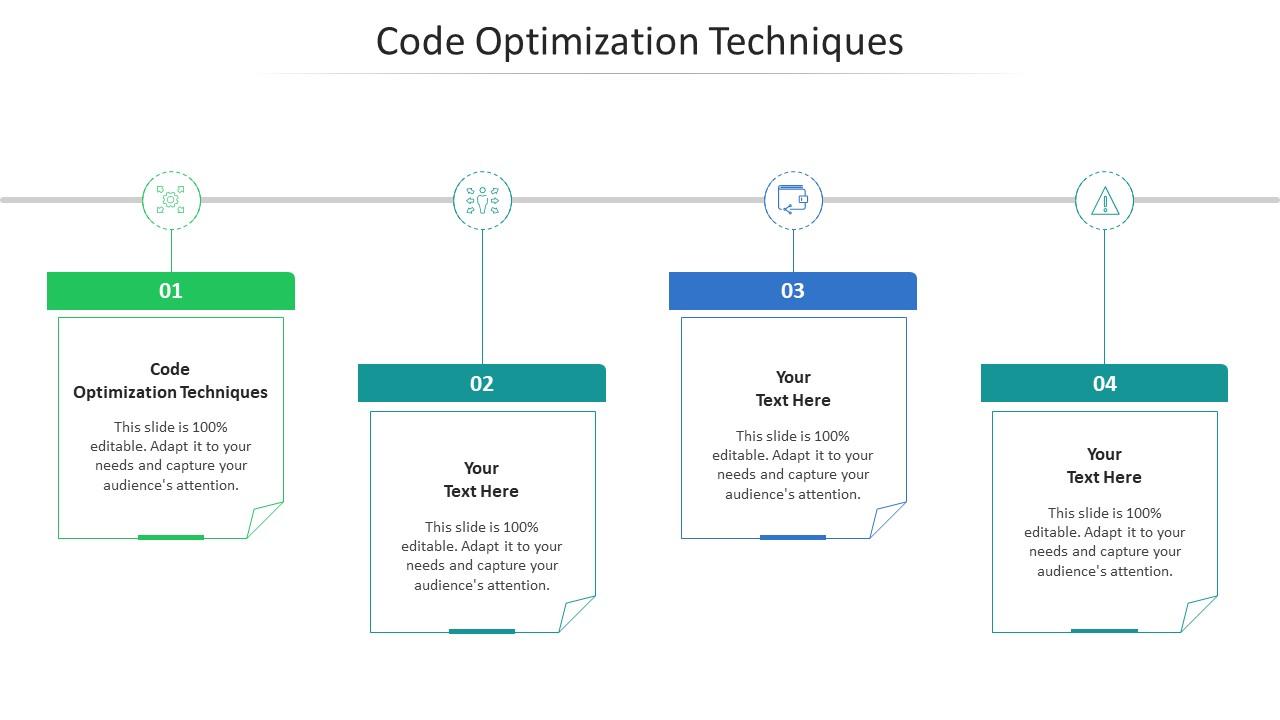
Exploring the Art of Efficient Programming: Code Optimization Techniques
Efficient code is at the core of high-performance software. In this article, we’ll delve into various code optimization techniques that empower developers to enhance the speed and efficiency of their programs, ensuring optimal performance in diverse computing environments.
Profiling and Identifying Bottlenecks
Before embarking on optimization efforts, it’s crucial to identify bottlenecks in your code. Profiling tools help pinpoint areas where the program spends most of its execution time. Addressing these bottlenecks provides a targeted approach to optimization.
Choosing the Right Data Structures and Algorithms
Selecting appropriate data structures and algorithms is fundamental to code optimization. Understanding the characteristics and time complexities of different data structures empowers developers to make informed choices. Optimizing algorithmic efficiency contributes significantly to overall program performance.
Memory Management and Allocation Strategies
Efficient memory management is a key aspect of code optimization. Minimizing unnecessary memory allocations and releases, using data structures that reduce memory overhead, and implementing caching strategies all contribute to a more streamlined and memory-efficient application.
Compiler Optimization Flags
Modern compilers provide a range of optimization flags that can significantly impact code performance. Flags like -O2 or -O3 enable various optimizations, such as loop unrolling, inline function expansion, and dead code elimination. Experimenting with compiler flags tailored to your specific needs can yield substantial performance improvements.
Parallelism and Multithreading
Utilizing parallelism and multithreading can significantly enhance program performance, especially on multi-core processors. Dividing tasks into parallel threads allows the program to execute multiple operations simultaneously, leading to faster execution times. However, careful consideration is needed to avoid synchronization issues.
Caching Strategies for Speed
Efficient use of CPU caches can greatly impact code performance. Utilizing local caches, minimizing cache misses, and optimizing data access patterns contribute to faster execution. Understanding the cache hierarchy of the target architecture is essential for effective caching strategies.
Inline Function Expansion
Inlining functions can eliminate the overhead of function calls, especially for small and frequently used functions. Compiler optimizations often include inlining, but developers can also manually designate functions for inlining. This technique reduces the function call overhead and improves overall program speed.
Minimizing I/O Operations
Input/output (I/O) operations are often a source of performance bottlenecks. Minimizing unnecessary file reads and writes, using buffered I/O operations, and optimizing database queries are strategies to enhance the efficiency of I/O-intensive applications.
Constant Folding and Propagation
Constant folding involves evaluating constant expressions at compile time rather than runtime, reducing the computational load on the program. Constant propagation replaces variables with their constant values when possible, further simplifying computations. These compiler optimizations contribute to faster and more efficient code.
Regular Code Reviews and Refactoring
Regular code reviews and refactoring play a crucial role in code optimization. Peer reviews can uncover inefficient coding practices, and refactoring allows developers to streamline code for better performance. Continuous improvement through reviews and refactoring maintains code efficiency over time.
Explore Code Optimization Techniques: Enhance Your Programming Skills
For those eager to enhance their programming skills through code optimization, a valuable resource awaits. Visit Code Optimization Techniques for in-depth insights, practical examples, and a structured approach to mastering the art of optimizing code. This link serves as a gateway to a world where efficiency meets excellence in software development.
This article explores various code optimization techniques, covering profiling and bottleneck identification, choosing optimal data structures and algorithms, memory management strategies, compiler optimization flags, parallelism and multithreading, caching strategies, inline function expansion, minimizing I/O operations, constant folding and propagation, and the importance of regular code reviews and refactoring. The inclusion of a resource link offers a guided approach for developers looking to enhance their programming skills through code optimization.
